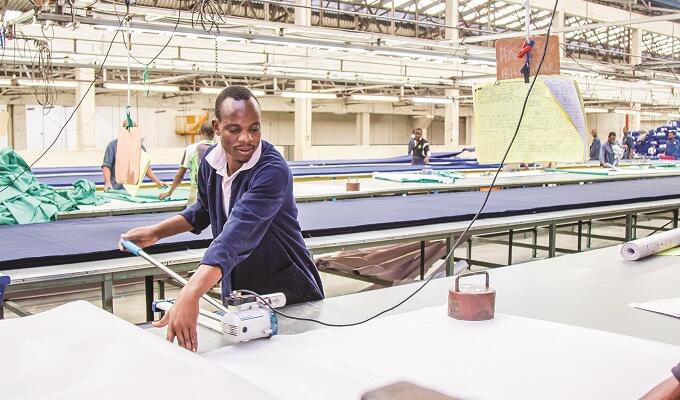

Trade for the 99% through inclusion and sustainability (en)
The case for trade as an enabler of growth, job creation and poverty reduction is well documented. Between 2000 and 2015 trade played a significant role in helping the world halve the number of people living in extreme poverty as set out in the Millennium Development Goals (MDGs). The Sustainable Development Goals (SDGs) – the successors to the MDGs – recognize the role of trade as a component in achieving the ambitious, new target of eliminating extreme poverty by 2030.
Though that’s a big challenge, it is achievable with global political will and responsibility, and a true partnership approach. Trade is a tool to achieve growth but it is trade plus smart domestic policies plus support for multilateralism that is a stronger recipe for more inclusive and sustainable growth.
At the International Trade Centre (ITC), green, sustainable and inclusive trade is at the heart of what we do. At the core of this is the support for micro, small and medium-sized enterprises (MSMEs), who are the drivers of economic growth and change on the ground.
MSMEs in all iterations have been the focus of ITC’s work since it was created in 1964. Whether working with China in the early decades of our existence to help them increase sales of cut flowers; or working with South Korea in the 1980s to help them build trade and investment support institutions to incubate MSMEs; or to today working with The Gambia to create job opportunities for youth and support an ecosystem of MSMEs, ITC has always viewed small business as agents of change. Today our work has shifted to a more conscious approach on integrating green, sustainable and inclusive elements into our projects and programmes.
For example, ITC has been a pioneer in requiring that all its programmes reflect the impact they will have on creating economic opportunities for women. We have also done this for youth and the environment. Every project at ITC has to show how it is having an impact in these three areas. All of our projects now have to show how and to which SDGs they are helping to support. It is part of our internal and external accountability to ensure we not only preach inclusive trade but that we practice it as well.
Ensuring equal opportunities for women is perhaps best exemplified by our work on SheTrades, which aims to connect 1 million women entrepreneurs to market by 2020. There are plenty of reasons why women should be more included more in the local and global economy but, in a nutshell, it makes good economic sense. Real economic growth cannot be achieved if more than half the population is prevented from taking part in the economy. It is simple logic: ‘Economics 101’.
Governments, trade and investment support institutions and private enterprises have so far pledged to support connecting more than 800,000 women to market. This shows SheTrades has struck a chord with policymakers and with business.
And it is working. Take Rihab Daqaweieh, a Palestinian designer. Before participating in ITC-supported projects she exported little and employed only around 50 workers. Today she employs more than 100 people and is exporting to Europe, Japan and the United States of America. That means that 50 more women now have a regular income, can afford to send their children to school or pay their family’s medical bills. It is the transformative and generational impact of stories like this that can help us reach the SDG targets.
Youth have also become a key focus area for ITC. While growing youth unemployment is a problem, a growing and productive youth population is not.
In response to the need to step up job creation for youth, ITC has not only streamlined youth in its programmes but also developed specific tools and projects targeting this demographic group.
In The Gambia, the Youth Empowerment Project (YEP!), is focused on creating more jobs for young people. Funded by the European Union Trust Fund for Africa, the project is bringing together local authorities, organizations and companies in an effort to create jobs and stem irregular migration. It is about creating opportunities for youth – often by youth – at home.
In the sustainability field, ITC worked with Peru to help improve the market position and exports of biodiversity-based products such as sacha inchi, a seed, which in turn improved the living conditions of farmers and harvesters. Helping farmers increase exports and incomes can be done in concert with climate-smart and green technology and by helping them adopt standards that improve quality and reduce waste.
These are just some examples of what ITC does to ensure more sustainability and more inclusiveness in trade. The programmes are part of a larger movement to make trade more inclusive. Supporting and investing in greener and more inclusive approaches at the firm level will have a multiplier effect on economies, societies and the environment.
Connecting viable enterprises to regional and international value chains means more jobs are created and more income is generated. In short, only by ensuring equal opportunities for the 99% to fully participate in trade will we achieve the main objective of the Sustainable Development Goals: eliminating extreme poverty by 2030.



